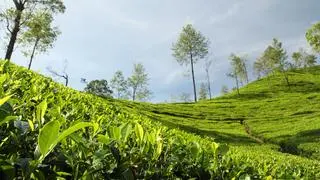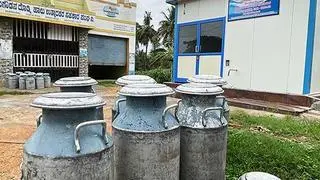The Solvent Extractors’ Association of India (SEA) has stressed the need to counter the misleading perceptions about palm oil with the help of scientific facts and evidences.
Speaking at a webinar on ‘Myths and truths of oil palm’, organised by Solidaridad on Wednesday evening, Atul Chaturvedi, President of SEA, said the amount of negative campaign carried out by the anti-palm oil lobby has the potential to mislead not only consumers but policymakers as well.
Some decision-makers get carried away by such campaigns and end up making decisions that may not be in the interest of either consumers or other stakeholders.
In this scenario, it is imperative that these misleading perceptions on palm oil is countered by using scientific facts and evidences, and help in building a positive image of palm oil, he said.
SEA, along with Solidaridad, the Indian Institute of Oil Palm Research and many industry stakeholders, has facilitated the development of the Indian Palm Oil Sustainability (IPOS) standard. He said IPOS has been developed considering the local conditions and realities. It provides a set of social, economic, environmental and agronomic guidelines for sustainable palm oil production and trade.
Sustainability
Chaturvedi said IPOS would provide sustainability framework for effective implementation of Government’s ambitious oil palm mission towards making country self-sufficient in edible oils.
Sustainably produced palm oil would help protect the environment and ensure that the social condition for producers as well as workers, he said.
SEA is already working with key palm oil producing countries such as Indonesia and Malaysia as part of creating a shared responsibility between producing and consuming countries, he said.
Stating that palm oil is the highest yielding oil crop with around five times greater per hectare production, he said it offers a better land use efficiency than other vegetable oils.
The Government is aware of the urgency of scaling up oil palm area in national interest, considering the growing domestic demand and the staggering cost to the exchequer on account of rising imports. To fulfill the national interest, the National Mission on Edible Oils - Oil Palm was launched last year with the aim to enhance the edible oils availability in the country by harnessing oil palm area expansion.
Through this ambitious mission, the government aims to improve self-sufficiency edible oils in the country. The government has assessed a total area of around 2.8 million hectares of oil palm cultivation.
Stating that no forestland is recommended for oil palm plantation, he said the oil palm is grown following environment friendly practices without replacing any forest land and with no harm to biodiversity and natural resources.








Comments
Comments have to be in English, and in full sentences. They cannot be abusive or personal. Please abide by our community guidelines for posting your comments.
We have migrated to a new commenting platform. If you are already a registered user of TheHindu Businessline and logged in, you may continue to engage with our articles. If you do not have an account please register and login to post comments. Users can access their older comments by logging into their accounts on Vuukle.